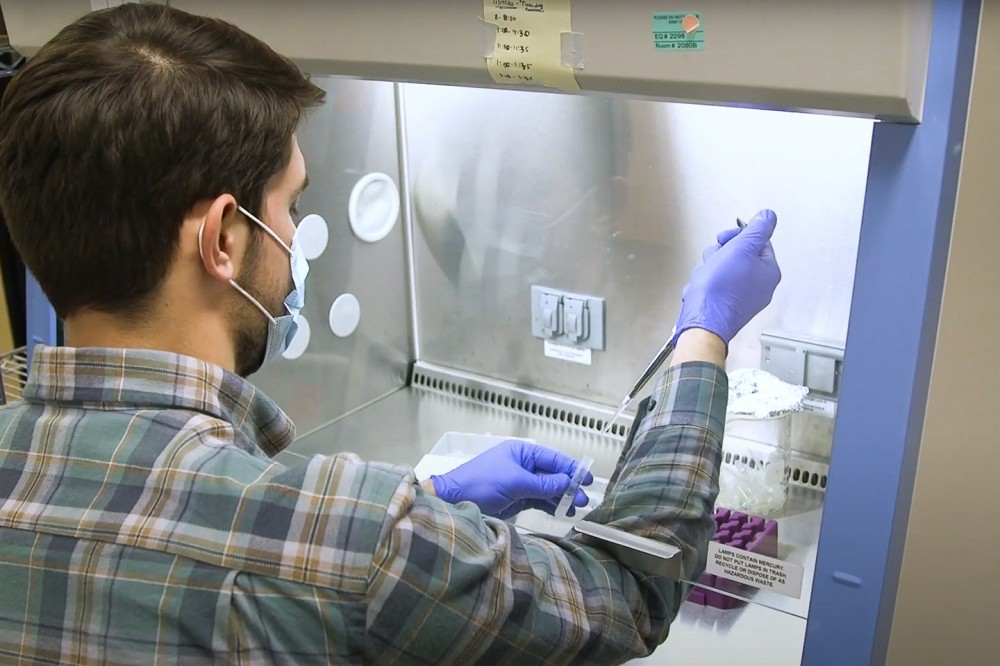MURFREESBORO, Tenn. — MTSU senior biology major Kwinci Britt conducts real-world lab research through the university’s Undergraduate Research Experience and Creative Activity, or URECA, a grant program that can give undergrads an early entry into the research arena and perhaps lay the groundwork for future academic or career endeavors.
And working with a mentor like biology professor Mary Farone, Ph.D., only makes participation in the program all the more invaluable.
“This is real research,” said Britt, before adding with a laugh, “and it’s very fun to do.”
A URECA grant offers undergraduate students the opportunity to earn $500 to $3,500, depending on their experience level and time availability, to participate on research projects with their faculty and peers.
Nathan Smith, a senior biochemistry student, also works with Farone and Britt on microbiology research as part of his URECA grant.
“I think undergraduate research is very important because you’re really going to pick up a lot of skills that you don’t get … the opportunity to experience in a classroom setting,” said Smith, who has a lot of different roles in the lab with Farone.
“I’m doing things from maintaining and culturing, transferring cultures, to observing, so I get to see a little bit of everything and do a little bit of everything, which is so nice about working here in this lab,” Smith added.
Farone explained that this particular microbiology project began in the 1990s. It focuses on food safety with an emphasis on preventing foodborne illnesses specifically on leafy salad greens, Smith explained.
“It’s involved a lot of undergraduate students,” she said. “They are the ones who have moved this project along the entire time.”
Experiments are conducted in groups or individually.
“When they (students) come into the research lab, they can see how those techniques now become valuable to them because … we know these are the techniques that they use for practical application in research,” Farone said.
Her URECA students work both with bacteria and with the host cell for the bacteria.
“They have to really learn to balance the care and culture of both of these types of organisms, so they learn all kinds of processes from the cellular level down to molecular types of work,” Farone explained.
Britt said that Farone trusts her to help other students in the lab.
“I find that really awesome being able to apply and use my knowledge to help other students figure out what they’re doing with the project,” she said. “I really value my relationship with Dr. Farone.”
To learn more about undergraduate research opportunities or to apply for the URECA grant, visit the website and follow the Undergraduate Research Center on Facebook.





